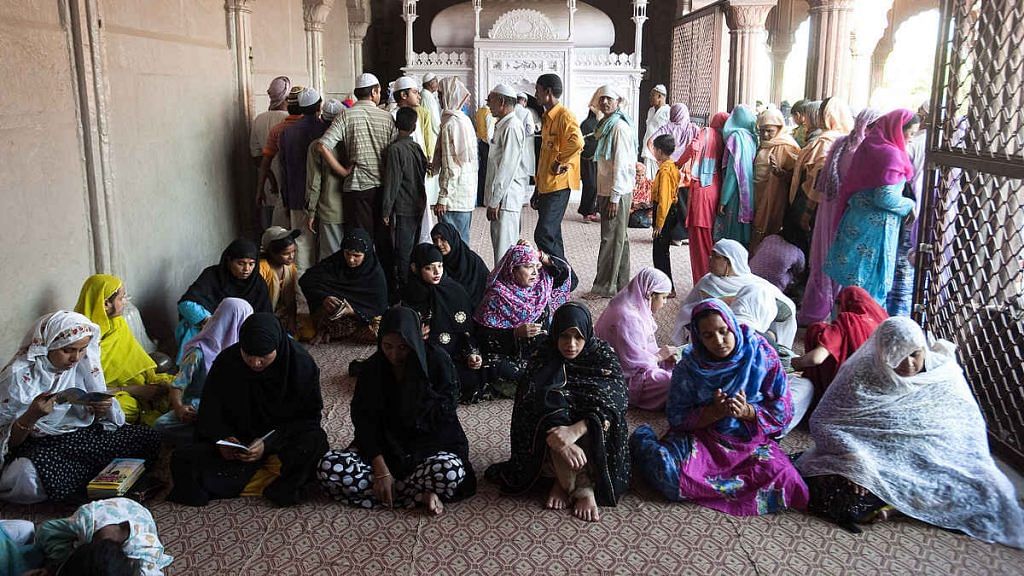New Delhi: The Supreme Court Monday dismissed a petition filed by the Akhil Bharat Hindu Mahasabha, which had sought an order permitting the entry of women into mosques.
The Hindu Mahasabha had challenged the Kerala High Court’s dismissal of its plea in October last year. The petition was filed by Swamy Dethathreya Sai Swaroop Nath, state president of the Hindu Mahasabha.
In dismissing the plea, Chief Justice of India Ranjan Gogoi remarked: “Let a Muslim woman challenge it.”
The court’s emphasis on the standing of the petitioners to challenge the religious practice is reminiscent of Justice Indu Malhotra’s dissent in the Sabarimala judgment. Justice Malhotra was the lone dissenter on the five-judge Constitution bench which had allowed the entry of women of all age groups into Kerala’s Sabarimala temple in September last year.
What Kerala HC had ruled
The Hindu Mahasabha had relied on the apex court’s September 2018 Sabarimala judgment, contending that it should now allow the entry of Muslim women devotees in mosques for prayers along with men.
The division bench of the Kerala High Court, comprising Justices Hrishikesh Roy and A.K. Jayasankaran Nambiar had, however, refused to entertain the petition, asserting that the petitioner had failed to establish that women are denied entry in Kerala’s mosques.
The high court had also specifically emphasised on the maintainability of the petition, observing: “The averments in the writ petition do not suggest that the petitioner is a person who should be ordinarily concerned with the rituals and practises of Islamic religion and, in particular, the alleged denial of entry of Muslim women in masjids.”
This was upheld by the Supreme Court Monday.
Also read: Muslim women’s body that backed Modi govt on triple talaq slams ‘inaction’ on lynchings
Justice Malhotra’s dissent on Sabarimala
The Supreme Court’s restraint in this case echoes Justice Malhotra’s dissent in the Sabarimala case, when she had favoured dismissal of the petition “for want of standing”.
Justice Malhotra had begun her analysis with an observation on the right of people to approach the court under Article 32 of the Constitution of India for enforcement of their fundamental rights:
“The right to move the Supreme Court under Article 32 for violation of fundamental rights must be based on a pleading that the petitioners’ personal rights to worship in this temple have been violated,” she wrote.
“The petitioners do not claim to be devotees of the Sabarimala Temple where Lord Ayyappa is believed to have manifested himself as a ‘Naishtik Brahmachari’. To determine the validity of long-standing religious customs and usages of a sect, at the instance of an association/intervenors… would require this court to decide religious questions at the behest of persons who do not subscribe to this faith.”
This was despite the fact that the plea before the court was a Public Interest Litigation, which as a concept relaxes rules of locus standi to allow third parties to approach the court in case of violation of fundamental rights.
However, Justice Malhotra had asserted that this lack of standing should not be viewed as a “mere technicality” but as an “essential requirement” to maintain a challenge against religious practices.
Justice Malhotra had then proceeded to warn of “floodgates” being opened to “interlopers” to question religious beliefs and practises. This, she said, would spell even greater perils for religious minorities.
Relying on Articles 25 and 26(b) of the Constitution of India, both of which endow the right to freedom of religion, she had then asserted that “courts normally do not delve into issues of religious practises, especially in the absence of an aggrieved person from that particular religious faith, or sect.”
Justice Malhotra’s judgment had therefore laid out the importance of cultural dissent coming from the dissenters themselves — something that Chief Justice Gogoi’s observations Monday echoed.
The Sabarimala judgment still stands. Post the verdict, several review petitions seeking review of the majority opinion have been filed, and are yet to attain finality.
Also read: SC admits plea to lift ‘ban’ on Muslim women in mosques. But Islam doesn’t bar them at all
